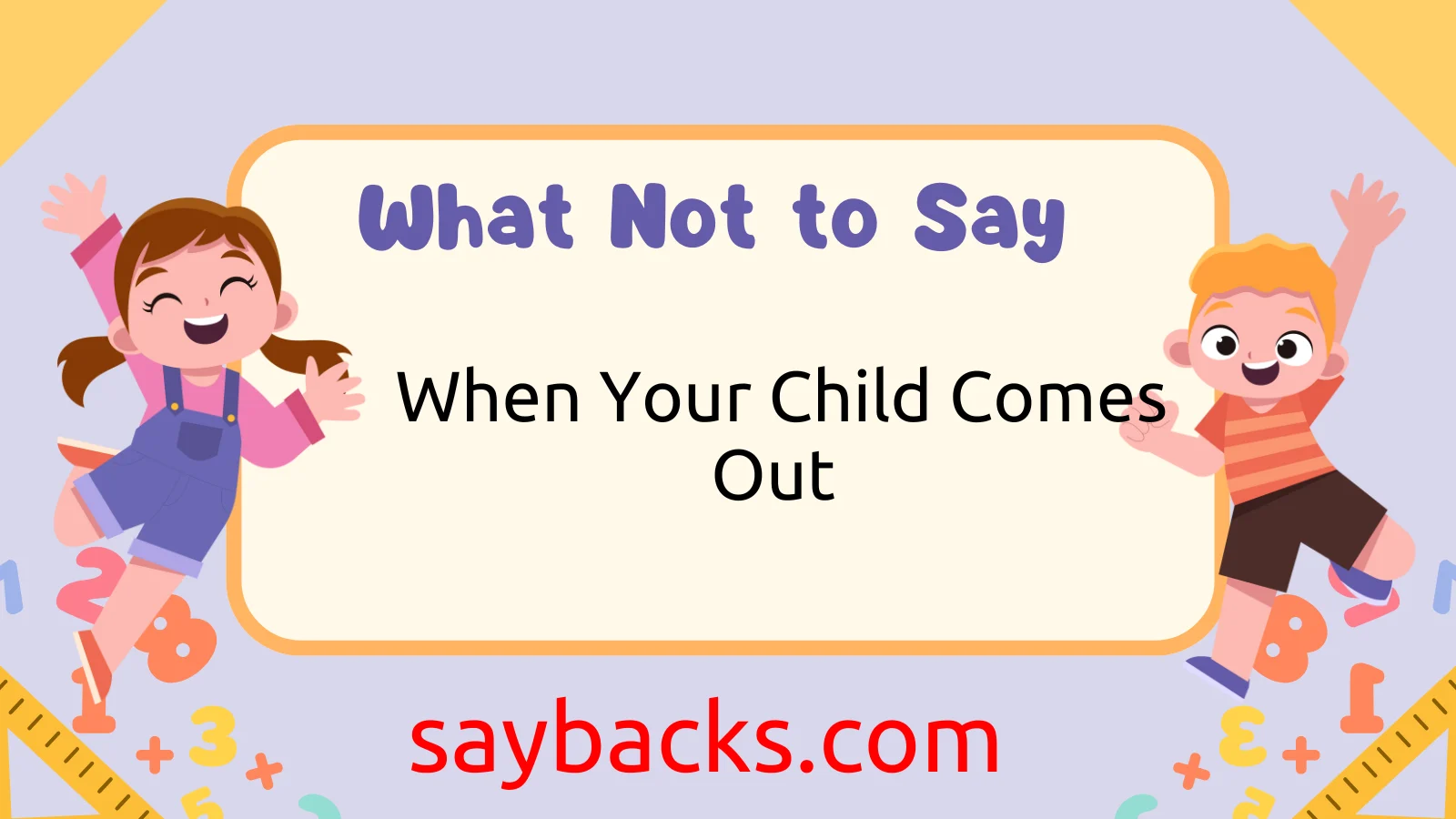When a child comes out as LGBTQ+, it’s a deeply personal and vulnerable moment. As a parent, your response can make a lasting impact—for better or worse. That’s why it’s so important to know what not to say when your child comes out. In this article, we’ll explore common hurtful phrases to avoid and why they can be damaging. With care and understanding, you can respond in a way that strengthens your bond and shows your love.
Don’t Say: “Are You Sure?”
This question might seem harmless, but it can make your child feel like you doubt their self-knowledge or experience.
Why it’s hurtful:
- It sounds like you don’t believe them.
- It puts pressure on them to prove or defend their identity.
✅ Instead, say:
“Thank you for trusting me. I’m here for you.”
Your support matters more than your certainty.
Don’t Say: “It’s Just a Phase”
Telling your child this invalidates their feelings and identity.
Why it’s damaging:
- It suggests they don’t know themselves.
- It makes them feel dismissed or not taken seriously.
✅ Try saying:
“I accept you exactly as you are.”
Let your child know you believe them and value their honesty.
Don’t Say: “What Did I Do Wrong?”
This makes the moment about you, not them.
Why it’s problematic:
- It shifts focus from your child’s courage to your own feelings.
- It may imply their identity is something “bad” or caused by you.
✅ Instead, say:
“You didn’t do anything wrong—I love you no matter what.”
Your love and calmness can help them feel safe.
Don’t Say: “You’re Too Young to Know That”
This phrase can be confusing and hurtful—especially when children know how they feel long before they share it.
Why it’s dismissive:
- Kids and teens often spend years thinking before they come out.
- This phrase questions their insight and maturity.
✅ A better response is:
“I trust you to know who you are.”
Believing them is a powerful way to show support.
Don’t Bring Up Religion or Shame
Saying things like “God wouldn’t approve” or “This is a sin” can deeply harm your child’s mental and emotional health.
Why it’s damaging:
- It can create lasting shame and fear.
- It often pushes children away from both their faith and their family.
✅ Consider saying:
“My love for you is unconditional.”
Even if you’re working through your own feelings, lead with love.
Final Thoughts
Knowing what not to say when your child comes out can make all the difference in how they feel about themselves—and your relationship. Avoiding judgment, disbelief, or fear-based reactions allows you to be a true source of support. Your child needs acceptance, not interrogation. Speak from love, listen with patience, and remind them they are never alone.

